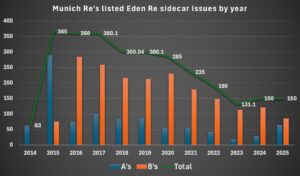Can term life insurance be extended?
Can term life insurance be extended?
While you technically can’t extend your current term life insurance policy, you can convert your term policy into a permanent insurance policy or buy a new term policy.
What kind of life insurance policy pays a specified monthly income to a beneficiary for 30 years?
A family income policy distributes the death benefit to your beneficiaries in monthly installments for a set period after you die, rather than in one lump sum.
What is a 15 year term life insurance policy?
A 15 year term life insurance policy offers a set premium and death benefit for the duration of that term length. The premium and death benefit can vary depending on your health, age, required coverage, and the addition of riders. At the end of a 15 year term, the policy usually ends.
What is the shortest term life insurance?
As the shortest term policy generally available, 10-year term life insurance will keep you covered for a decade. This type of policy is best if you’re looking to cover short-term financial obligations that will last 10 years or less, like paying off student loans.
Does term life insurance have a cash value?
The bad news is that term life insurance has no cash value. When your policy ends, you don’t receive any money. On the bright side, it’s less expensive than permanent insurance. Due to the savings on premiums, you may end up ahead financially with term coverage despite the lack of a cash value. Jun 7, 2021
Can I get 40 year term life insurance?
Key Takeaways. It’s rare to find life insurance companies offering 40-year term life insurance policies. In fact, you can currently only purchase these from two companies: Protective Life Insurance and General & Legal. A 40-year term life insurance plan is significantly more expensive than a 10- or 20-year term policy. Feb 11, 2022
How much is a 40 year old life insurance policy worth?
According to eFinancial, the cost of a 10-year, $250,000 life insurance policy is typically between $15 and $17 per month for a healthy 40-year-old. … Term life insurance rates by age and sex. Age Coverage amount: $250,000 40 years old Coverage amount: $250,000 Male: $16.31Female: $15.22 4 more rows
What is a level death benefit?
A level death benefit is a payout from a life insurance policy that is the same regardless of whether the insured person dies shortly after purchasing the policy or many years later. It can be contrasted with an increasing death benefit, which rises in value over time as the policyholder ages.
Can I cash out my term life insurance policy?
Because the number of years it covers are limited, it generally costs less than whole life policies. But term life policies typically don’t build cash value. So, you can’t cash out term life insurance. Oct 7, 2020
Is life insurance needed after 60?
If you retire and don’t have issues paying bills or making ends meet you likely don’t need life insurance. If you retire with debt or have children or a spouse that is dependent on you, keeping life insurance is a good idea. Life insurance can also be maintained during retirement to help pay for estate taxes.
Do you need life insurance after age 65?
In many cases (although not all) you won’t need to keep term life insurance in retirement. This insurance is temporary and will expire at some point. But if you have a permanent life insurance policy, it can continue to provide you with important benefits through your retirement. Jul 23, 2021
Is term life insurance effective immediately?
Term life insurance policies have no waiting period. So, coverage is immediately applicable. The only exception is that suicide is not covered in the first year of the policy. Aug 7, 2017
How does a term insurance work?
Term insurance is pure protection life insurance policy. It provides coverage for a defined period in exchange for a specified premium amount. In case of an unfortunate event during this time-frame, the insurer provides a guaranteed# payout. It compensates your nominee for the loss of your income.
What happens to my life insurance if I get fired?
Generally, if you have no other options, your life insurance coverage will end when you leave your job. That means you’ll need to apply for new coverage (either at your new job or independently from a life company or broker) based on your current age and health status.
What’s the difference between whole life and term life insurance?
Term life insurance provides coverage for a set period of time, typically between 10 and 30 years, and is a simple and affordable option for many families. Whole life insurance lasts your entire lifetime and also comes with a cash value component that grows over time.



